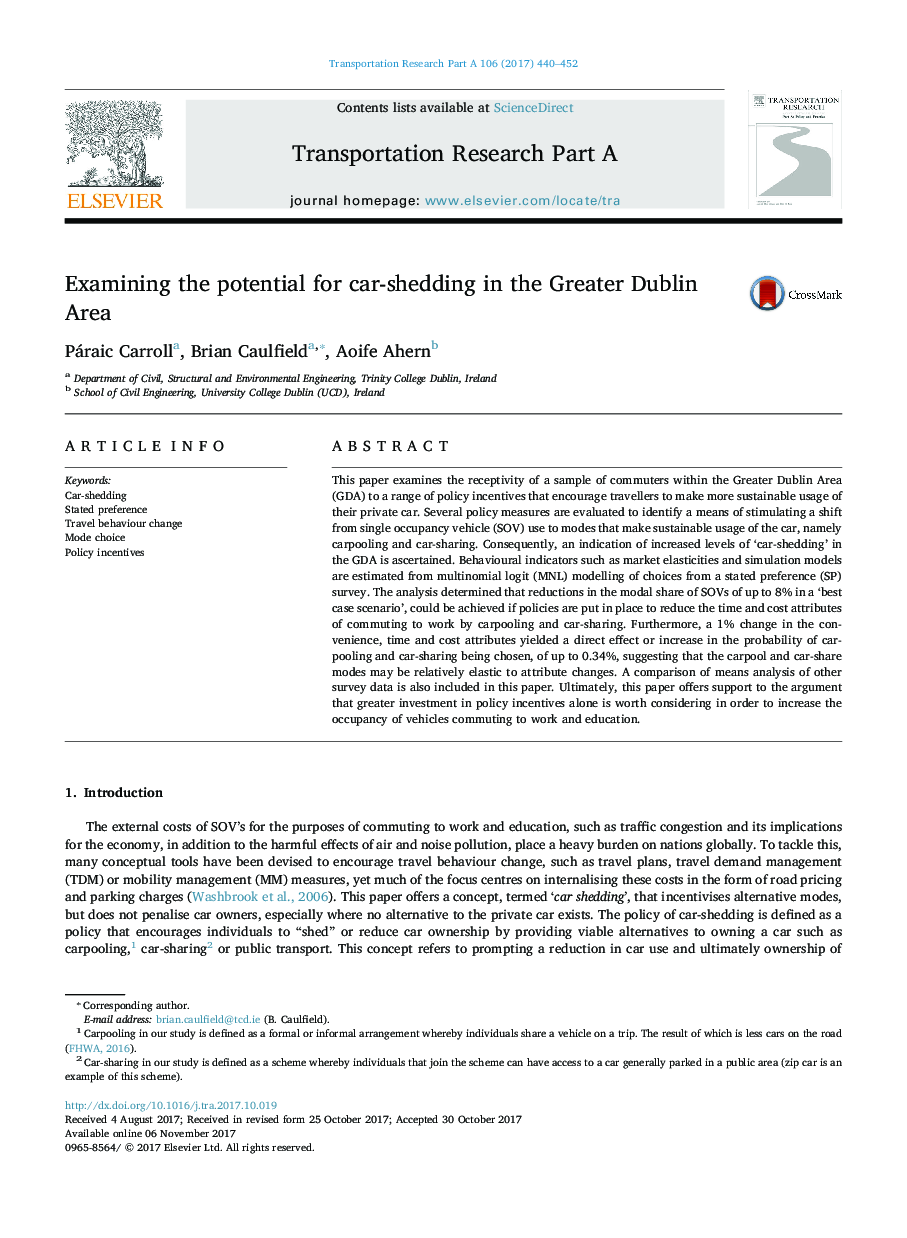| Article ID | Journal | Published Year | Pages | File Type |
|---|---|---|---|---|
| 6780677 | Transportation Research Part A: Policy and Practice | 2017 | 13 Pages |
Abstract
This paper examines the receptivity of a sample of commuters within the Greater Dublin Area (GDA) to a range of policy incentives that encourage travellers to make more sustainable usage of their private car. Several policy measures are evaluated to identify a means of stimulating a shift from single occupancy vehicle (SOV) use to modes that make sustainable usage of the car, namely carpooling and car-sharing. Consequently, an indication of increased levels of 'car-shedding' in the GDA is ascertained. Behavioural indicators such as market elasticities and simulation models are estimated from multinomial logit (MNL) modelling of choices from a stated preference (SP) survey. The analysis determined that reductions in the modal share of SOVs of up to 8% in a 'best case scenario', could be achieved if policies are put in place to reduce the time and cost attributes of commuting to work by carpooling and car-sharing. Furthermore, a 1% change in the convenience, time and cost attributes yielded a direct effect or increase in the probability of carpooling and car-sharing being chosen, of up to 0.34%, suggesting that the carpool and car-share modes may be relatively elastic to attribute changes. A comparison of means analysis of other survey data is also included in this paper. Ultimately, this paper offers support to the argument that greater investment in policy incentives alone is worth considering in order to increase the occupancy of vehicles commuting to work and education.
Related Topics
Physical Sciences and Engineering
Engineering
Civil and Structural Engineering
Authors
Páraic Carroll, Brian Caulfield, Aoife Ahern,
